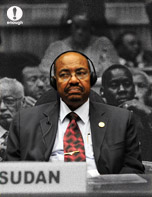
A new Enough Project report details how, in its final nine months, the Obama administration has an unprecedented opportunity to build on emerging leverage with the Sudanese government and deploy new targeted financial pressures to support a peace deal in Sudan.
Sudanese President Omar al-Bashir continues to commit abuses against his own people throughout Darfur, South Kordofan, Blue Nile, and many other parts of the country. His government continues to bomb civilian populations from the air and block humanitarian aid on the ground. The Bashir regime has survived for more than 25 years by successfully looting the State and its considerable resource wealth and by responding to all opposition with unsparing violence. Past policy approaches have failed to counter the regime’s ability to finance conflict or to enrich itself at the expense of the Sudanese people. As long as the regime can benefit from conflict and silence opposition, it has no incentive to pursue peace.
OVERVIEW
Sudan has become increasingly financially isolated during the last year, resulting largely from new types of sanctions measures and tightened enforcement measures that were principally focused on Iran. Sudan has been impacted because foreign banks moved to reduce their exposure to risky accounts and institutions in the wake of large fines paid for sanctions violations involving Iran and Sudan, as well as to protect against broader sanctions and money laundering risks. The spillover effect on activities of leading officials associated with the Khartoum government has caused sanctions relief to replace debt relief as the regime’s primary preoccupation.
To maximize this newfound leverage with the Sudanese regime, the Obama administration should adopt a strategy based in part on an approach that was effective over time in bringing Iran to the negotiating table. While the economic and political contexts of Iran and Sudan are quite different, as are the underlying U.S. national security and foreign policy interests and exigencies, the fact is that both governments have become severely compromised due to isolation from the global financial system.
This financial isolation has created leverage with the government of Sudan—leverage that so far is not being utilized in a broader peace strategy—and opened a new opportunity to press for concessions on issues that have seemed intractable for decades.
The policies and actions of the Bashir regime justify enhanced and modernized U.S. sanctions. The government of Sudan does not deserve sanctions relief or debt relief so long as it undermines inclusive peace in Sudan and diverts public financial and military resources to attacking the Sudanese people and enriching itself.
MODERNIZING PRESSURES
The Obama administration, including the White House, Treasury Department, and State Department, should deploy a new wave of modernized sanctions tools that can more effectively target top regime officials and their commercial interests. The recommended actions focus on gathering and using tangible data on the principal vulnerabilities to which the Sudanese regime and its close allies are exposed, so that policy options are evaluated and selected in direct relation to available evidence.
Tools to Increase Financial Leverage*:
- Conducting outreach to foreign banks, followed by sanctions on those facilitating the regime’s worst violations.
- Targeting the conflict gold and weapons sectors.
- Increasing enforcement of existing sanctions.
- Introducing anti-corruption sanctions and increasing designations of companies owned by NISS (Sudan’s National Intelligence and Security Service) and key regime elites.
- Issuing an anti-money laundering advisory focused on gold and corruption.
- Asset tracing and recovery.
MITIGATING NEGATIVE IMPACTS
Blaming Sudan’s economic woes and poor healthcare access on U.S. sanctions, the Sudanese regime has organized a significant international campaign to have U.S. sanctions lifted. While many have questioned the Sudanese regime’s stance on U.S. sanctions, a number of organizations operating in Sudan have legitimately pointed to challenges they face related to the current sanctions policy. The U.S. government can and must do more to alleviate the negative impact of sanctions on service providers that support the Sudanese public. However, it is the regime’s own economic vulnerabilities—and not its concern for the welfare of the Sudanese people—that drive this concerted multi-front campaign to lift U.S. sanctions. The United States should not succumb to diversionary tactics and a manipulation of the humanitarian imperative—tantamount to blackmail—from a government that continues to terrorize and persecute its own people.
Steps to Mitigate Negative Impacts*:
- Specific messaging on bank de-risking, including ensuring banks know who are and aren’t the focal targets of concern of sanctions.
- General licensing allowing for some categories of exports to Sudan—including public reporting modeled on Burma Responsible Investment Reporting Requirements.
- Provide general licenses and/or “expedited consideration” for specific licenses to enable academic and people-to-people exchanges with Sudan.
- Resolve specific licensing jurisdiction duplication between the departments of Treasury and Commerce.
- Expand the list of entities owned or controlled by the government of Sudan.
PUBLIC ACTION:
Write to President Obama and urge him to take a new approach to Sudan sanctions
CONGRESSIONAL ACTION:
Increase and target resources to U.S. agencies implementing these measures
CONGRESSIONAL ACTION:
Sign on to a currently circulating Lantos Commission/Sudan Caucus Letter
*More details can be found in Enough’s report, Modernized Sanctions for Sudan: Unfinished Business for the Obama Administration

